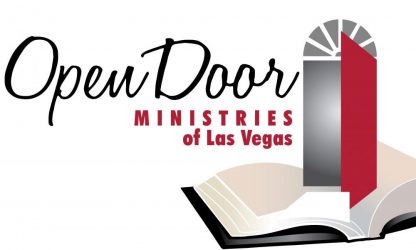
One of the primary critiques of Catholicism issued by Protestants is that Catholic parishioners are often discouraged from reading and interpreting the Scriptures on their own. The critique contends that the priests handle this on behalf of the flock. A Protestant who simply carries a Bible around mirrors the Catholic he critiques if he relies completely on his pastor to read the text for him and supply all of the interpretation. If self-reading/interpretation is the goal, then training in how to read the Scripture is essential for establishing our ability to interpret it.
The Old Testament is considered to be roughly 75% Hebraic poetry. There are literary features of Hebrew poetry that escape the eye of even the most experienced English reader who does not have a knowledge of the Hebrew language underlying his English translation. One such feature is an alphabetical acrostic. This format provides that each successive line, half-line or verse begins with a letter of the Hebrew alphabet in alphabetical order. Poetically, this is a method of saying that the text completely covers everything in terms of its topic from A to Z, so to speak, or in Hebrew, from Aleph to Tav. Psalm 111, for instance, begins each of its 22 lines with one of the 22 Hebrew letters in the order in which they appear in the Hebrew alphabet. Proverbs 31:10-31 is often called “The Excellent Wife.” It consists of 22 verses, each one beginning with one of the 22 Hebrew letters, again in order.
Alliteration derives from the Latin, “latira,” meaning “letters of alphabet.” An alliteration is a stylistic device in which a number of words, found closely together in a sentence, either begin with the same letter or letters or with the same sound. In the rhyme, Better Botter by Carolyn Wells, we have a tongue-twisting example: “Betty Botter bought some butter, but she said, this butter’s bitter; if I put it in my batter, it will make my batter bitter, but a bit of better butter will make my bitter batter better…” In English, Scripture’s first few words are “In the beginning, God created. . .” (Gen. 1:1) However, in Hebrew, it is: “Bereishit bera Elohiym. . .” Bereishit and bera both begin with the letters bet (the Hebrew B) and reish (the Hebrew R), and thus are alliterative.
Another feature of Hebraic poetry that is slightly easier to discern in English translations, but still largely hidden from view, are wordplays, including word puns.[1] A word pun is a play on words in which, for instance, similar sounding words (with similar roots) repeat with different meanings.[2] It is common, for instance, in the Hebrew Scriptures, for the names of Biblical characters to be fashioned after words that give meaning to the nature of the character himself. For instance, Adam is taken from the word, adamah, meaning “ground” since he was formed from the dust of the “ground” (adamah). (Gen. 2:7)[3] Eve’s Hebrew name, Chavah, derives from the word, chay, meaning life, “because she was the mother of all living.” (Gen. 3:20)[4] In Genesis 2:25, we learn that the first man and woman were naked–arumim–and in the very next verse, the snake is described as “clever”–arum. Arumim and arum are similar sounding words built on the same root word, arom (spelled ayin-reish-mem), but meaning different things in the context of the Biblical text. Moving forward into the Genesis story, we have Isaac, named Yitzhak in Hebrew, which is a play on the verb tzachak, meaning to laugh, for when God told Abraham of his 90-year-old wife, Sarah, that “kings of peoples will come from her, Abraham fell facedown and laughed (tzachak).” (Gen. 17:16-17)[5] Later in the story of Isaac, the wordplay of Isaac to laughing, or in Hebrew, yitzhak to tzachak, continues. Isaac, like his father, Abraham, was guilty of telling people that Rebekah, his wife, was his sister. In Genesis 26, Isaac made this claim to the people of Gerar. (Gen. 26:7) In the NIV version of events, their king, Abimelech, “looked down from a window and saw Isaac caressing Rebekah his wife.” (Gen. 26:8) The root of the word translated as caressing is tzachak. So, in Hebrew, Isaac caressing reads “Yitzhak tzachak,” or Laughing was “laughing” with Rebekah, his wife. In this case, the NIV translators spotted this play on words, and translated the word tzachak to mean “caressing” or an act of lovemaking, a potentially better fit for the context of the story.
Another word pun occurs during the story of the person of Joseph. In Genesis Chapter 40, two servants of the king of Egypt, a cupbearer and a baker, were thrown into the prison where Joseph was also confined. There, they both had dreams. Joseph was called upon to interpret them. The cupbearer’s dream involved three branches. “This is what it means,” Joseph said to him. “The three branches are three days. Within three days Pharaoh will lift up your head and restore you to your position, and you will put Pharaoh’s cup in his hand, just as you used to do when you were his cupbearer.” (Gen. 40:12-13) The chief baker’s dream involved three baskets of bread. “This is what it means,” Joseph said. “The three baskets are three days. Within three days Pharaoh will lift up your head from you (may-ah-leh-cha) and impale your body on a pole.” (Gen. 40:18-19) Did you notice the repeating words in verses 13 and 19? In Hebrew, “Pharaoh will lift up your head” is “yissa Paroh et rosheka“–in verse 13 indicating a good result, and in verse 19, a bad one.
Hebrew word puns can also be discerned in certain books of the New Testament, particularly the Book of Matthew. Although there are no existing Hebrew manuscripts that can be traced back to the 1st Century C.E., there are many who contend that the Book of Matthew was originally written in the Hebrew language. The basis for this understanding is the testimony of a number of early Church fathers.
“Matthew put down the words of the Lord in the Hebrew language, and others have translated them, each as best he could.”—Papias, mid-2nd Century A.D.
“Matthew, indeed, produced his gospel written among the Hebrews in their own dialect.”—Irenaeus, (120-202 A.D.)
“The first [gospel], composed in the Hebrew language, was written by Matthew. . .for those who came to faith from Judaism”—Origen, (first quarter of the third century)
These quotes were recorded by Eusebius, a Roman historian, in his book Ecclesiastical History. who would later become the Bishop of Caesarea in Palestine in 314 A.D. He made his own comment below:
“Matthew had first preached to the Hebrews, and when he was about to go to others also, he transmitted his gospel in writing in his native language.”
Among the later Church fathers (post-Nicean from 325 A.D.), we have the following:
“They have the entire Gospel of Matthew in Hebrew. It is carefully preserved by them as it was originally written, in Hebrew script.”—Epiphanius, Refutation of All Heresies.
“Matthew was the first in Judea to compose the gospel of Christ in Hebrew letters and words. . .Who it was that later translated it into Greek is no longer known with certainty. Furthermore, the Hebrew text itself is still preserved in the library at Caesarea which the martyr Pamphilus assembled with great care.”—Jerome, De Viris Inlustribus 3
Discerning Hebrew word puns in the Matthean text lends strength to this position. Here are several examples:
1) When Jesus healed a paralytic in Chapter 9, we read: “When the crowds saw it, they were afraid, and they glorified God, who had given such authority to men.” (Matt. 9:8) The Greek words used for “saw” (idontes) and “were afraid” (ephobethesan) have no apparent connection to each other as figures of speech. However, when the verse is translated into Hebrew, those two words, saw and were afraid, are found to be homonyms, both pronounced “vayir’u,” though originating from two different root words, ra-ah (r-h) for saw, and yare (y-r) for afraid.
2) In Matthew Chapter 3, when John the Baptist “saw many of the Pharisees and Sadducees coming to where he was baptizing,” he made a declaration to them, part of which states: “And do not think to yourselves, ‘We have Abraham as our father.’ I tell you that out of these stones God can raise up children for Abraham.” (Matt. 3:9) In Greek, the word used for stones is lithon, and the word for children is tekna. There is no phonetic or word play connection between those words. However, when translated into Hebrew, those words become ebenim (stones) and benim (children). They are closely related phonetically, and in fact, rhyme, connecting the meaning of stones and children in a very intimate and “easy to remember” way that the corresponding Greek words do not.
3) In Matthew 16:18, we have a Greek word play: “And I tell you, you are Peter (Petros), and on this rock (petra) I will build my church, and the gates of hell shall not prevail against it.” Petros is a Greek name meaning rock or small stone, and petra also means rock, as in a large rock. Both words are similar sounding and have a similar meaning. At the same time, there is also a word play in the Hebrew translation: : “And I tell you, you are Peter, and on this rock (eben) I will build (ebneh) my church, and the gates of hell shall not prevail against it.” In Psalm 118:22, we see a similar pun: “The stone (eben) that the builders (bonim) rejected has become the cornerstone.” (eben/bonim) This word pun is repeated by Jesus in Matthew 21:42: “Jesus said to them, “Have you never read in the Scriptures: “‘The stone (eben) that the builders (bonim) rejected has become the cornerstone; this was the Lord’s doing, and it is marvelous in our eyes?” The corresponding Greek for stone (lithon) and “those building” (hoi oikodomountes) or builders (oikodomos) are not word plays.
4) In Mark, Chapter 4, we read: “The Kingdom of God is as if a man should scatter seed on the ground.” (Mark 4:26) In Greek, we have the following words: anthropos (man), bale (scatter), sporon (seed) and ges (ground). None of these Greek words relate to each other phonetically or as figures of speech. In Hebrew, however, we see two pairs of very similar words: adam–man links to adamah–ground; zara–scatter and zera–seed. The second pair is encased within the first pair. Together we have: adam–zara–zera–adamah.
Parallelisms
Other literary features are much more easily identified by the English reader. Among these are parallelisms. A parallelism displays a relationship of two or more lines/verses of text to each other. Thoughts repeat, sometimes in the same way–a synonymous parallelism, other times in a contrasting way–an antithetical parallelism, other times the second line reinforces/adds to the first or explains the who, what, where, why, or how of the first–a synthetic parallelism. There are other types of parallelisms–climactic, eclectic, emphatic–but for now, the first three types are the forms we’ll be dealing with. Here are some examples:
“There is no speech, nor are there words.” (Ps. 19:3) (Synonymous)
” The law (torah) of the LORD is perfect, restoring the soul; the testimony of the LORD is sure, making wise the simple.” (Psalm 19:8) (Synonymous)
“Your word is a lamp to my feet and a light for my path.” (Ps. 119:105) (Synonymous)
“Lamech said to his wives, “Adah and Zillah, listen to me; wives of Lamech, hear my words.” (Gen. 4:23) (Synonymous)
“For everything there is a season, and a time for every matter under heaven.” (Eccl. 3:1) (Synonymous)
“The heart of the wise inclines to the right, but the heart of the fool to the left.” (Eccl. 10:2) (Antithetical)
“He who keeps the commandment keeps his soul, But he who is careless of conduct will die.” (Prov. 19:16) (Antithetical)[6]
“A time to be born, and a time to die; (Eccl. 3:2a) (Antithetical)
a time to plant, and a time to pluck up what is planted.” (Eccl. 3:2b) (Antithetical)[7]
“Fire goes before Him, and burns up His adversaries round about.” (Ps. 97:3) (Synthetic–what fire does)
“The sacrifice of the wicked is detestable –how much more so when brought with evil intent!” (Prov. 21:27) (Synthetic–evil intent adds to wickedness)[8]
In Part 2, we will move on to the study of chiasms.
ENDNOTES
[1] In ancient Israel, and up until the invention of the printing press in the Renaissance period, the written words of the Scripture were largely unavailable to the masses. Most people throughout their generations received the word by oral transmission. “Then Moses commanded them, saying, “At the end of every seven years, at the time of the year of remission of debts, at the Feast of Booths, when all Israel comes to appear before the LORD your God at the place which He will choose, you shall read this law in front of all Israel in their hearing.” (Deut. 31:10-11) The messages of the Gospels were shared orally for decades before they were committed to writing. The word pun, in light of this, was an extremely useful method for securing the remembrance of the Scriptures that were only read or shared by voice.
[2] Examples of puns in English: “Time flies like an arrow. Fruit flies like a banana.” “When a clock is hungry it goes back four seconds.” (The word “four” is a homonym of “for” but means something different. “A chicken crossing the road is truly poultry in motion.” Poultry sounds like poetry, but poetry is not like a chicken.
[3]” And God formed the man (adam) from the dust of the ground (adamah).” Gen. 2:7
[4] “The man called his wife’s name Eve (Chavah), because she was the mother of all living (chay).” (Gen. 3:20)
[5] Then Abraham fell on his face and laughed (tzachak), and said in his heart, “Will a child be born to a man one hundred years old? And will Sarah, who is ninety years old, bear a child?” And Abraham said to God, “Oh that Ishmael might live before You!” But God said, “No, but Sarah your wife will bear you a son, and you shall call his name Isaac (Yitzhak); and I will establish My covenant with him for an everlasting covenant for his descendants after him. (Gen. 17:17-19)
[6] Charles Dickens also used a string of antithetical parallelisms to open his novel, A Tale of Two Cities: “It was the best of times, it was the worst of times, it was the age of wisdom, it was the age of foolishness, it was the epoch of belief, it was the epoch of incredulity, it was the season of Light, it was the season of Darkness, it was the spring of hope, it was the winter of despair, we had everything before us, we had nothing before us, we were all going direct to Heaven, we were all going direct the other way. . .”
[7] Each half-line of Eccl. 3:2a and 3:2b is antithetical to its corresponding half (born/die, plant/pluck), but each line, taken as a whole, is synonymous to its corresponding line.
[8] 6 Jesus said to him, “I am the way, and the truth, and the life. No one comes to the Father except through me. 7 If you had known me, you would have known my Father also, From now on you do know him and have seen him.” (John 14:6-7) (Synthetic–how do we come to the Father? We come to know the Father through knowing his Son, Jesus)


